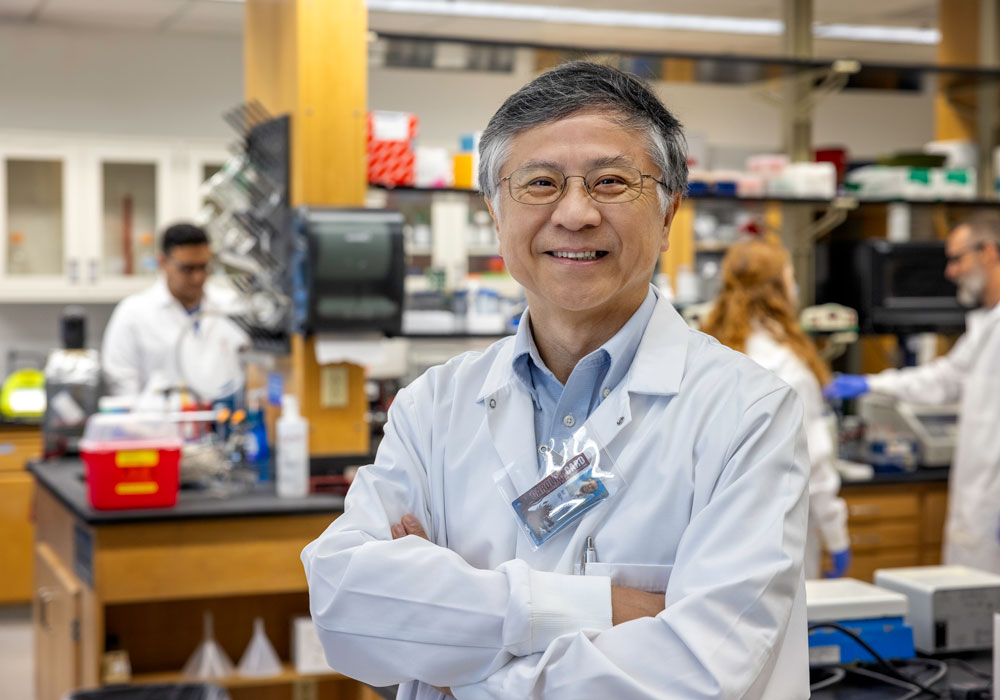Qun Lu’s quest to develop an effective drug treatment for Alzheimer’s and other neurodegenerative diseases has brought him to the University of South Carolina.
Lu, who joined USC in January as the new SmartState Endowed Chair in Neurotherapeutics Chemical Biology, has developed, with his research team, novel therapeutic molecules that have demonstrated effectiveness in rodent models that mimic Alzheimer’s disease.
The therapeutic compound Lu’s team has developed targets a key signaling cascade in the brain believed to play a critical role in the manifestation of Alzheimer’s and related diseases, including Parkinson’s and amyotrophic lateral sclerosis (ALS), and might also play a role in disorders such as schizophrenia and autism, Lu says. The therapeutic molecules function as a homeostatic modulator, regulating the signaling cascade to prevent both over- and under-activation.
“We’ve already been issued a U.S. patent, and we’re excited about results we’ve seen in rodent models,” Lu says. “We’re at the stage now where we want to try the molecules on different disease models.”
To that end, Lu’s team is collaborating with scientists at the University of Denver who are conducting research with a rodent model that mimics ALS disease. Results from that study are expected later this fall, he said.
Many Alzheimer’s-focused drug research studies measure memory function as the standard of effectiveness, but Lu’s team added a different standard — the ability to carry out activities of daily living such as eating and attending to other basic needs. In essence, helping someone with Alzheimer’s to remain in the familiar surroundings of home is key because the inability to care for oneself ushers in the end of independence and the need for nursing home care, he says.
Lu’s team is also interested in testing the effectiveness of its therapeutic molecules in late-stage cancers that have spread throughout the body. The goal is to use the therapeutic agent to prevent the metastasized cancer cells from clustering and forming secondary tumors, Lu says.
While his research team forges ahead in its drug discovery efforts, Lu is keen to forge new research partnerships across the university, from his own academic home in the College of Arts and Sciences to the College of Pharmacy and the School of Medicine.
“There are many outstanding researchers here, and I hope that we’ll be able to increase the university’s visibility by developing more concentrated efforts in the field of Alzheimer’s and related disease research,” he says.
